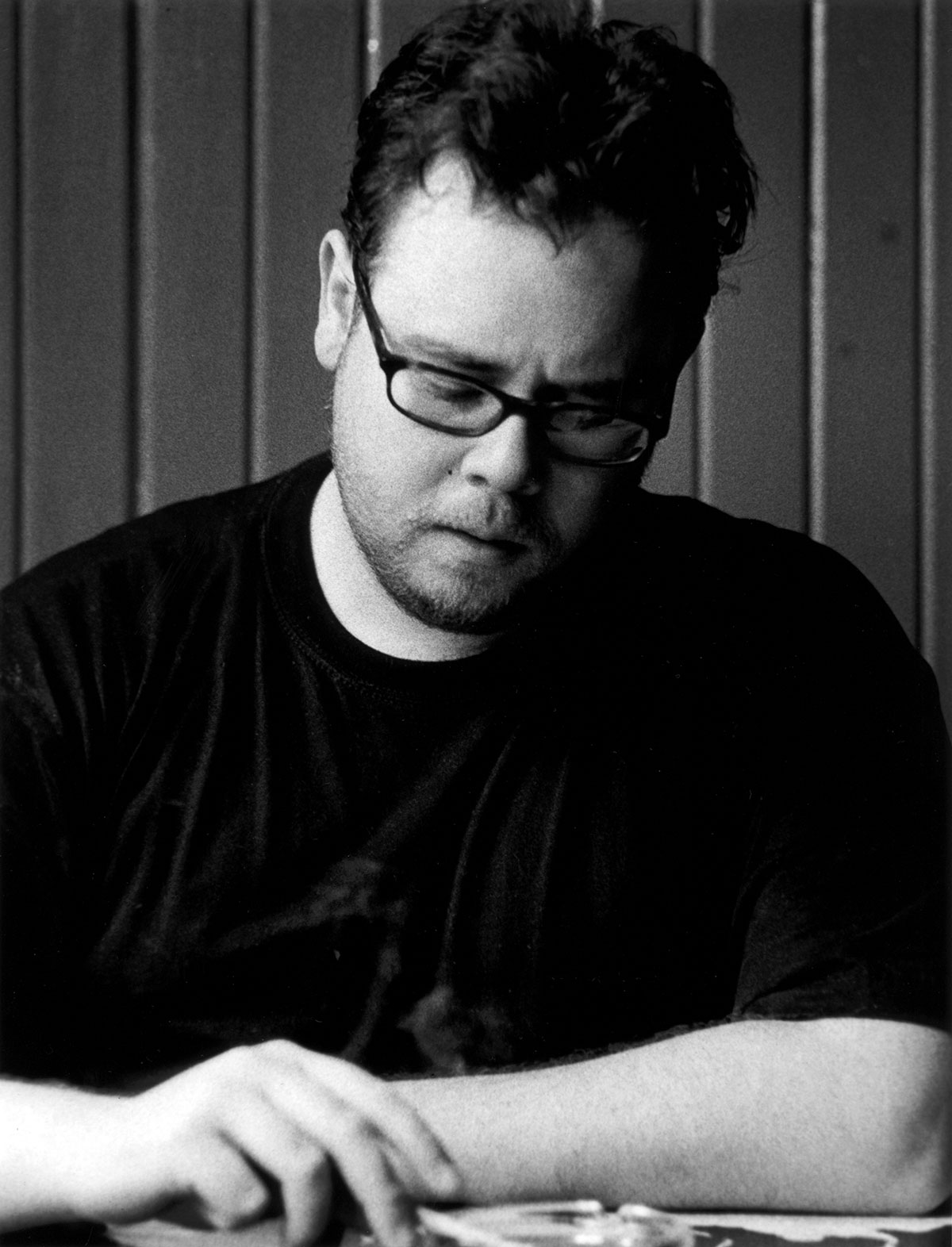
Anyone who has ever been to a literary event in Toronto has likely seen or met poet Paul Vermeersch. A veritable whirlwind on the local scene, Vermeersch serves as both the curator and host of the bi-weekly IV Lounge Reading Series and the poetry editor of Insomniac Press. Now, less than two years after the release of his well-received debut collection, Burn, Vermeersch has returned with a follow-up volume, The Fat Kid.
As its title suggests, The Fat Kid is about growing up overweight. Its main character, Calvin Little, is born a fat kid, grows up a fat kid, and deals with the pressures of society, family, and friends as a fat kid. Vermeersch dedicated the book to fashion designer Calvin Klein, the man he considers to have made the most visible contribution to the crisis of body image in contemporary culture. The name “Calvin Little” is actually a play on both Klein, the purveyor of “perfect” bodies, and the main character’s decidedly non-little size. “I think people are only starting to discuss the pressure that men are under to look their best, to measure up to accepted models of male attractiveness,” says Vermeersch. “I think that this issue probably gained steam again in the nineteen-nineties, when [Klein] introduced his new design for boxer-brief underwear and posters sprang up across the continent on bus shelters and the sides of buildings with Mark Wahlberg’s ‘perfect’ torso….I don’t think the general public had ever been exposed to advertising that so glorified the male physique before.”
Vermeersch has the ability as a writer to critique accepted social norms without making grandiose statements or being overtly political. Instead, his poems explore the landscape of human experience through mundane day-to-day activities. In “Come See What’s On Sale Now At Sears,” Calvin is forced to confront his increasing girth while trying on new clothes. When a pair of pants doesn’t fit him, a salesgirl must tell Calvin’s mother the pants don’t come in his size. “I was a fat kid,” Vermeersch says. “Being a fat kid was lousy. Everything’s harder when you’re a fat kid. Playing sports is harder. Making friends is harder. And getting a member of the opposite sex to like you—forget it! Of course I had a body image problem. How could I be expected to like my body when no one else did? I think I created Calvin Little partly to exorcise my lousy childhood; to create a vessel where all the negative things could be stored and maybe even treated with a little humour. I still have an inner child, I guess. He’s not a very happy little boy, but he’s funny sometimes.”
Vermeersch’s involvement in the Toronto literary scene dates back to 1998, shortly after he moved to Toronto from London, Ontario. Finding the city to have a vibrant culturalscape he wanted to be a part of, he founded the IV Lounge Reading Series in a tiny bar on Dundas Street West. Originally known as the Café Za Che Zu Reading Series—quickly shortened to just the Café Readings Series—Vermeersch had been the only person to respond to an E-mail call from the now-former proprietors, who wanted to institute a regular arts night. “When I first arrived in Toronto, a little over four years ago, I was, quite frankly, astounded by what seemed to me the endless possibilities in the writing scene. I wanted to jump in with both feet and have fun with it and be active,” Vermeersch says.
The series has since become one of the most interesting and popular literary events in town—a fact made obvious by the various latecomers who vie for standing room near the IV Lounge’s door and often end up on the outside landing until intermission. Since its inception in May, 1998, the series has featured a wide range of writers, from Natalee Caple to Christian Bök to Lynn Crosbie. Vermeersch admits his approach to programming relies largely on his own taste, though he often tries to book people who are travelling through town to give the series a more national flare. “[I]f someone’s work isn’t to my taste, if I can spot the quality, then I’ll book that person. I think it’s always important to recognize artistic accomplishment beyond one’s own taste,” he says. “Every now and then a dud sneaks in, but that’s part of the game, too, and I won’t mention any names. Just as often I can be surprised by how startlingly good a person’s performance is, particularly if I was previously unaware of the person’s work.”
In 2001, Vermeersch edited The IV Lounge Reader, a collection of largely-new work by several of the authors and poets who had contributed to the series. While at first glance the mix of various writing styles and authors at varied career stages seems like an odd collection, Vermeersch says his choices fit with the mandate of the series itself. “I approached the people whose work reflected my own impression of what the IV Lounge Reading Series is and what I think it represents and what it’s trying to achieve. There’s everything from Sherwin Tjia’s very creepy text experiments to poems for adolescents by Dennis Lee.”
Lee, Toronto’s poet laureate, best known for his children’s poem “Alligator Pie,” sums up Vermeersch’s work most aptly: “Paul Vermeersch has developed one of those improbable energy crossroads that manages to be the right place for its time. The joint is tiny; the quality fluctuates all over the map. But if I wanted to take the pulse of new writing [in Toronto], there is no other place I’d look first.”